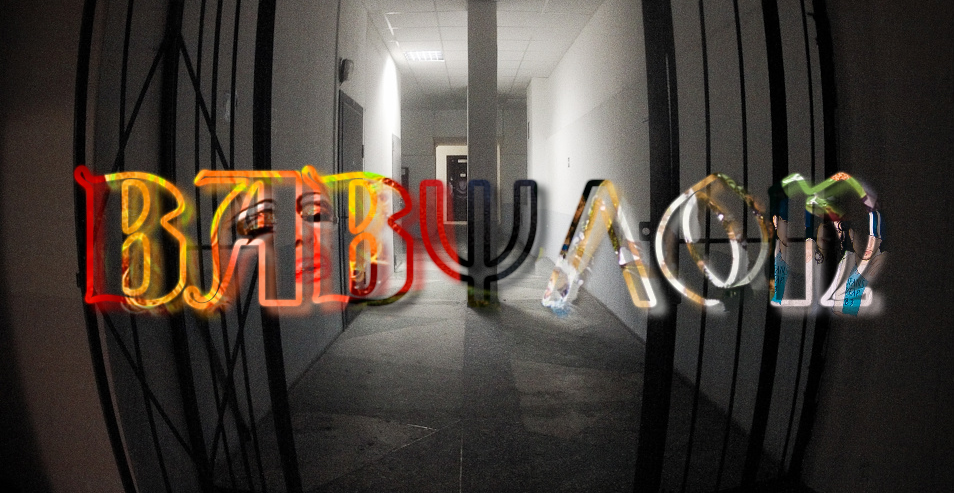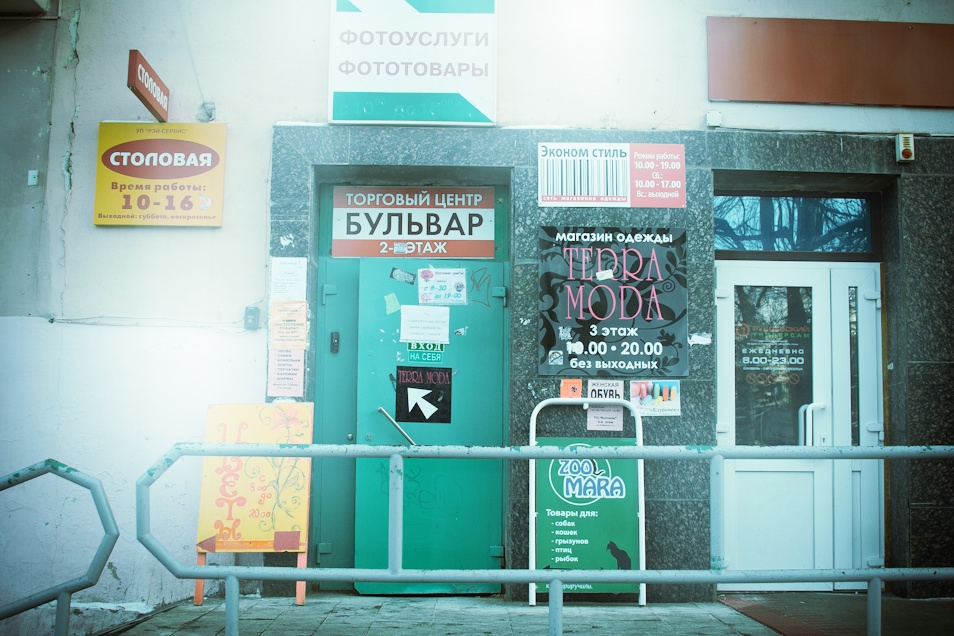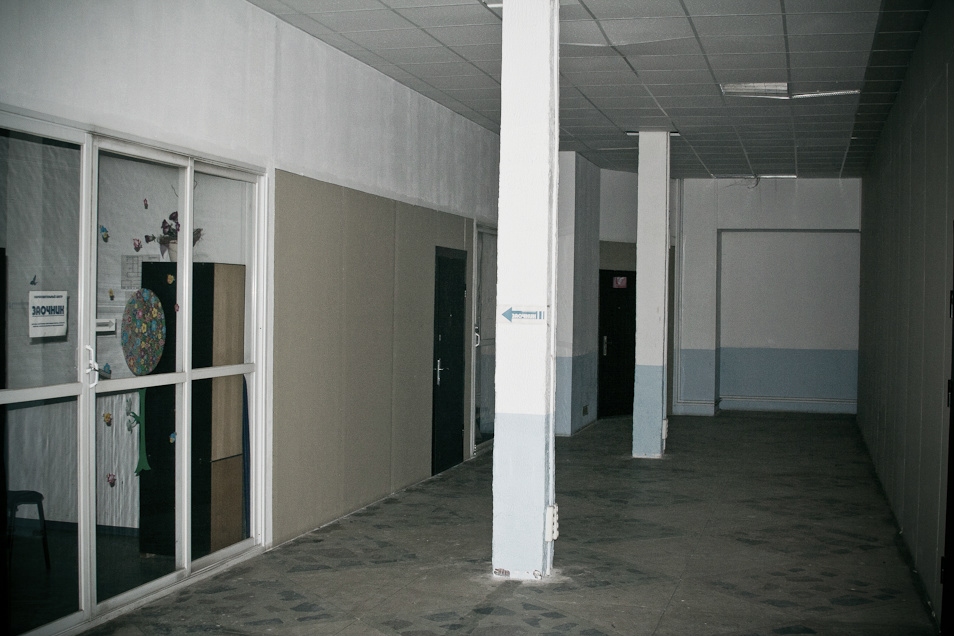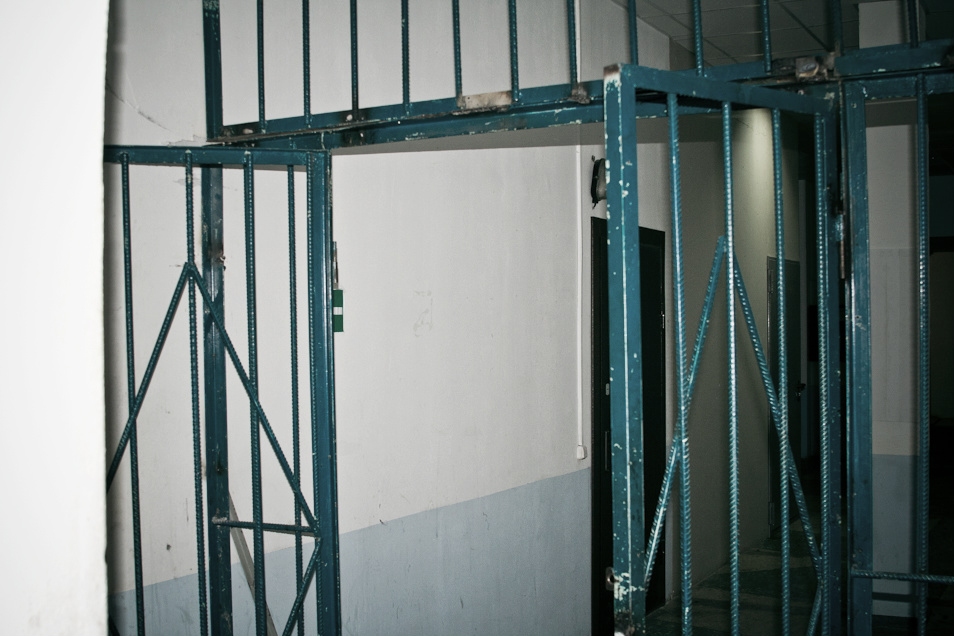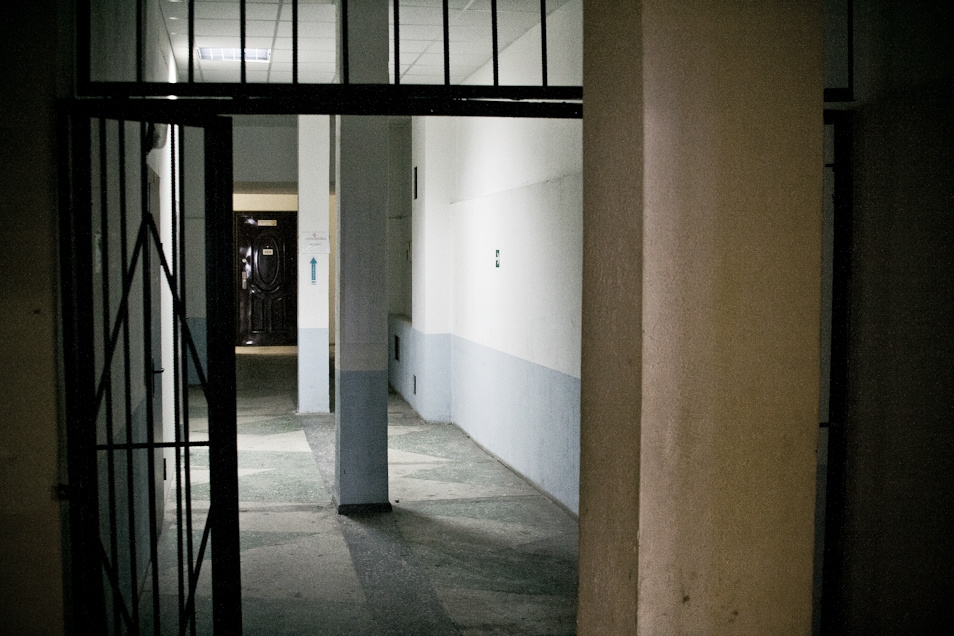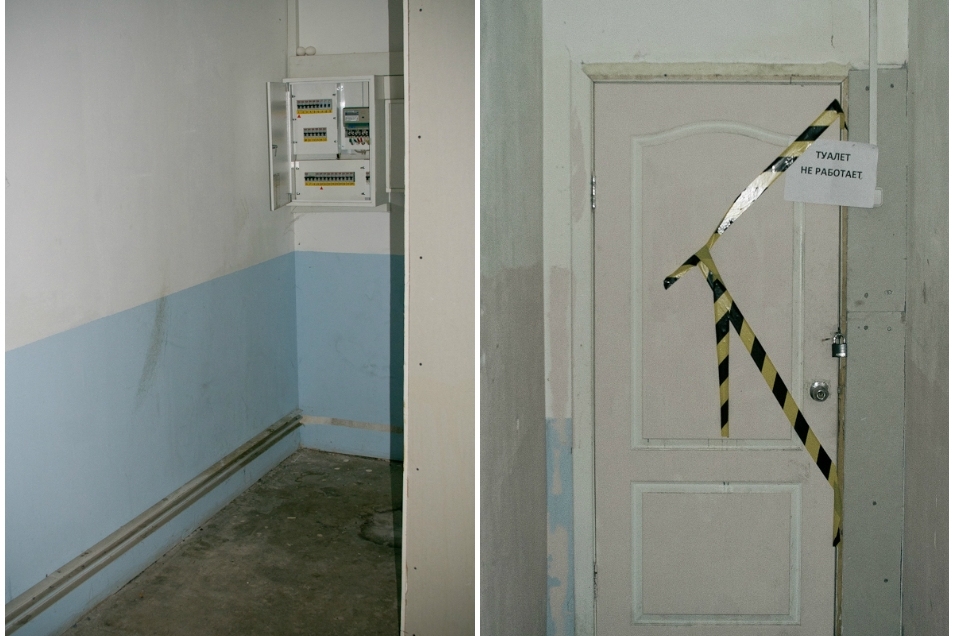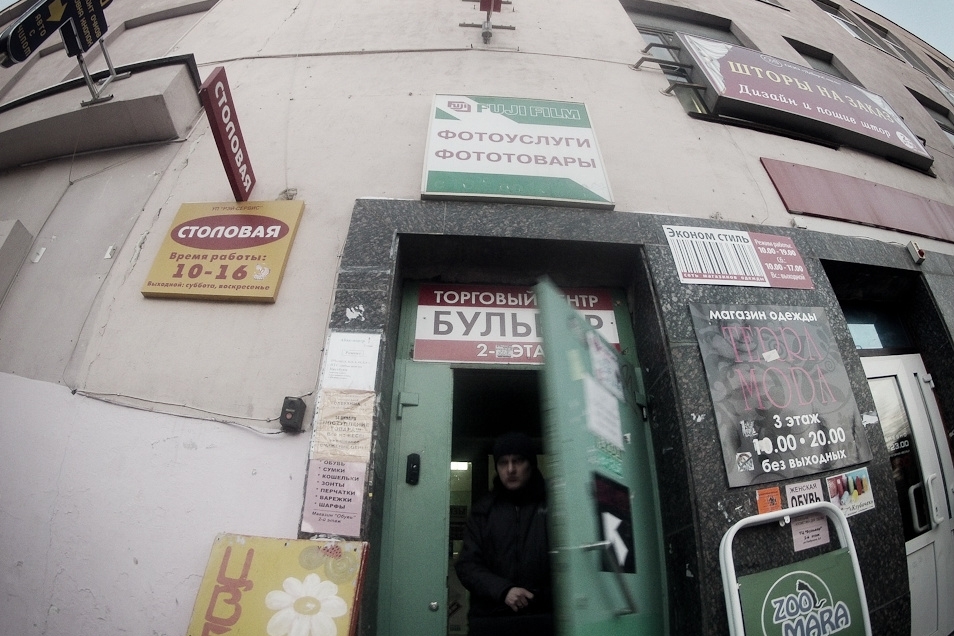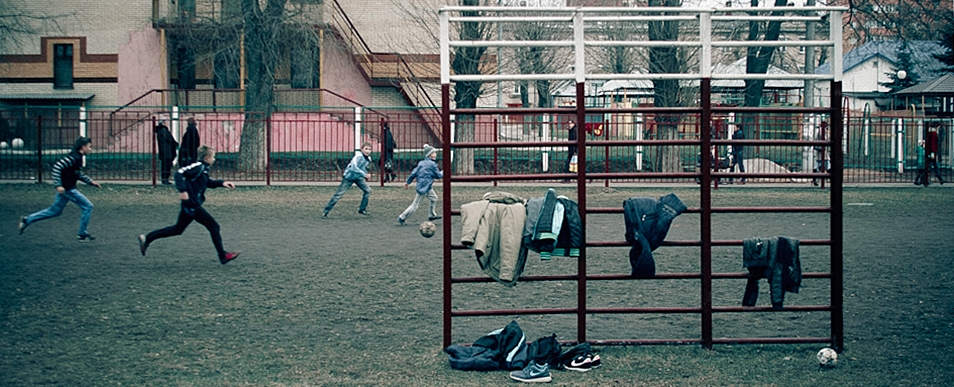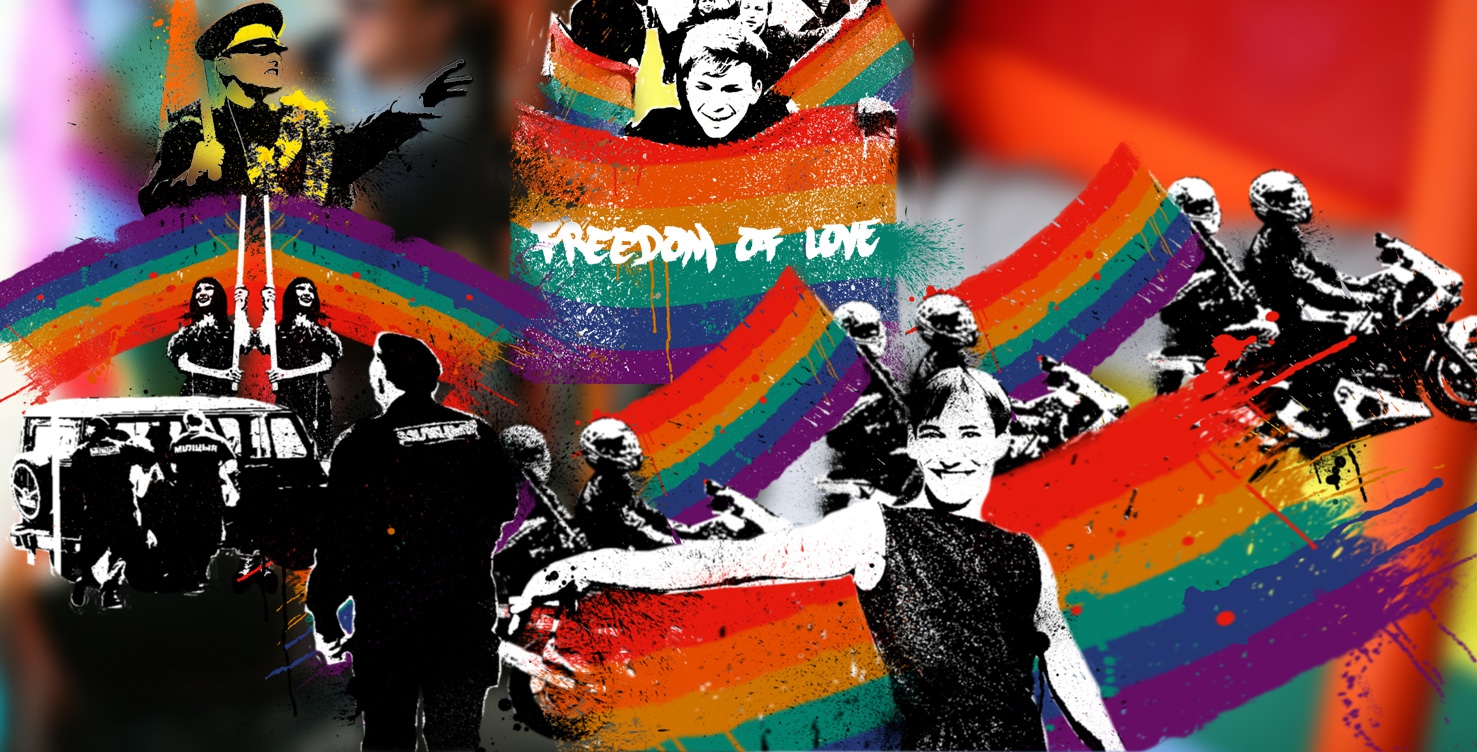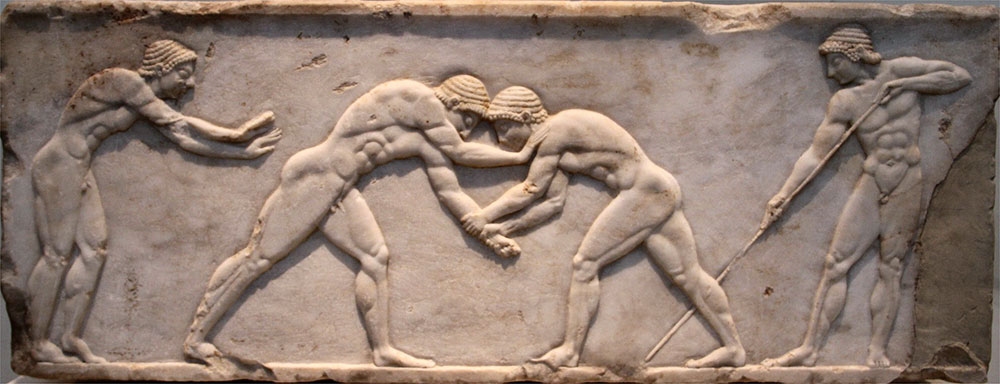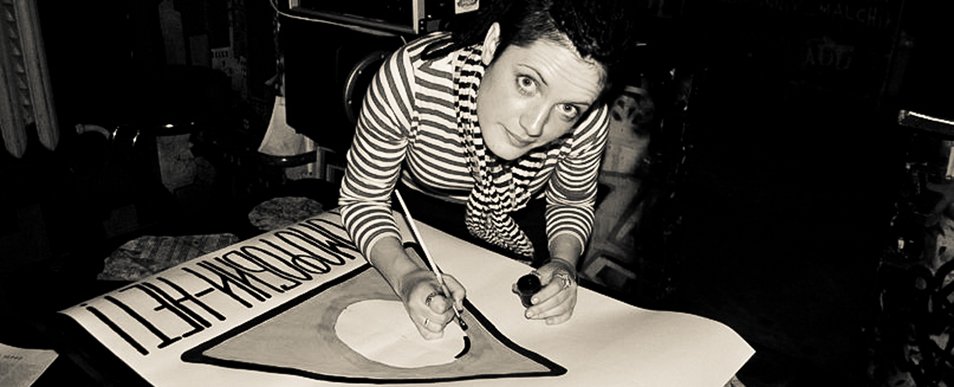The legendary club Babylon was one of the most glamorous venues is Minsk, loved by both homosexual and straight public. Youngsters under 18 dreamt to get there. And some people even now recall “the days of Babylon” as the best time of their lives. What was so special about that place? Why has any local gay-club not been able to gain the success “Babylon” had?
Talbuchina str, 4 – is an ordinary building not far from Park Chaliuskincaŭ metro station, the 4th floor of the department store, a door behind the metal fencing. Here the most famous gay-club Babylon that had existed for six years (from 2001 until 2007) was situated. A high bar set by the club in those days could be reached neither by its successor (Casta Diva, Shokolad) nor by its rivals.
Dj Яdzik, one of the most famous club residents, is the one who has worked behind the Babylon Dj pult for a long time. He describes Babylon as a comfort place where you have had an opportunity to be among your fellows. At least that was the idea behind when it all had started.
DJ Яdzik: “In the daytime people could work anywhere, but they came here to “knock themselves out”. Here they behaved as they wanted – they could dress the way they wanted, talk the way they wanted, and behave towards their fellows, as they wanted. The society is still rather “traditional” – our people feel very constrained, and this situation won’t change soon. People are afraid to show themselves in the daytime thus they do that at night. Probably, that’s why we still have closed or semi-closed clubs”.
In search for the community, people could often come to Panikoŭka[1] first, and only there they learned about Babylon. Of course, there were other kinds of stories, but Dzima’s was a quite usual one. He got to Babylon in the summer of 2001 when he was 18, and he had regularly visited the club for long since then.
Dzima (31 year old): “Panikoŭka and Babylon were the two places I visited at that moment. At first, I certainly came to Panikoŭka, and then I learned that there was that club – Babylon. It wasn’t the place where I looked for the community. It was a place to relax and feel at ease. I know that many people were looking for new acquaintances, etc. there. But for me it was just the venue with a good music, a good bar and its own atmosphere”.
Babylon was a kind of glamorous makeweight to Panikoŭka for me.
When it was Saturday, we all gathered at Panikoŭka, drank beer there, because in those times you could drink beer anywhere, and then we went to Babylon and continued our partying. Then we left for home, slept it off, got rid of our puffy faces. On Sunday, we were whooping it up again at Panikoŭka.
It had anything you wanted from that place. Everyone visited it with their own goals. And people found each other there in order to reach those goals. If you wanted to get to know anyone at the bar, to talk – then you could sit at the bar, and always (may be not right away) you would be paid attention to and got acquainted with. If you wanted an easy-going one night stand you could do that right in the club – there was a curtain from the right side of the Dj pult. Frankly speaking, even I who took easy all kinds of sexual diversity in those days felt a bit uncomfortable about that.
At the moment I had rather serious and stable relationships, thus, naturally, my reason for going to the club was not to find anyone. My priority was to socialize, to find the company I would feel at ease with. And I found that company, I’ve kept in touch with lots of them now”.
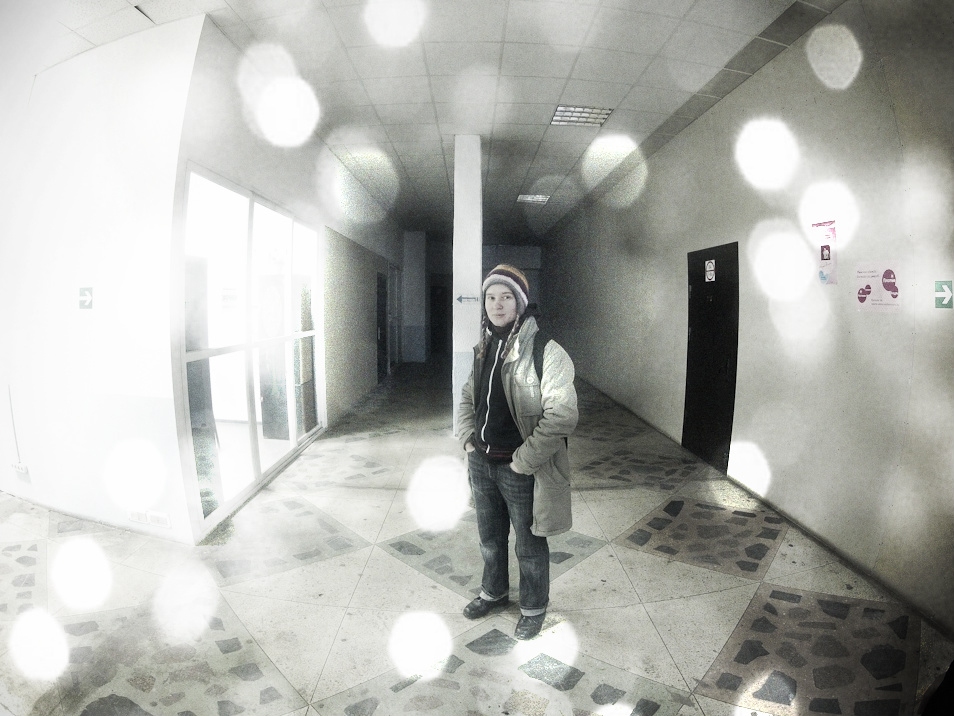
Babylon as a cultural phenomenon
Gay-pride events, first transvestite contests, drag queen and divas travestie shows – all these and lots of other things happened at the Babylon scene. The heroes of the article recall the rich cultural program of the club.
DJ Яdzik: “There were cultural processes happening there all the time. An important contribution has been made by Edvard Tarliecki who now lives abroad. That’s true, you can see Babylon as a cultural phenomenon, which in spite of low costs has had a certain cultural meaning for the city.
The contest Miss Diva was especially memorable, that was held for the elderly “ladies” and was called Miss Diva. The Little Faded Scarlet Flower. The participants were gentlemen in their forties, and they were very diligent preparing for the show. They had a better financial standing and could afford not just to make a dress but also to decorate it with precious stones. And thus the contest turned out to be very beautiful and bright. Edvard organized such events till the last days. There was a really creative crew around him that was drinking alcohol in the daytime and was making miracles at night. Max Juchaŭ who at that time worked in STV television was a contest host. He and his group sometimes organized very interesting parties that actually gathered the city and made people stand in a queue starting from the ground floor.”
Besides the entertaining function Babylon had also an educational role. Sometimes the venue was used for activism, though this direction had never been primary (“…and it was also a kind of a quasi-community center in embryo”).
Dzima: “There you could easily buy Forum[2] magazine, music CD’s, Lambda [3] made brochures, that were on the tables, you could take them with you and read. Vstrecha[4] was working in the field of HIV/AIDS prevention giving away condoms, lubricants, etc. So there could be some activism but it was a kind of “quasi”. The venue positioned itself as absolutely neutral; it wasn’t preoccupied with any activist stuff. ”
“Country” clubs VS. Babylon
DJ Яdzik had worked here every night – starting from the opening of the club in February 2001 till August 2005 (“…I’ve never thought about it in the way: “I’m going to make up a party”. I just went to work. It’s only now we can say that we have been doing a cool thing, that it has been a cool club.”) A Babylon former DJ recalls how it all has started.
DJ Яdzik: “We put a minimum of sound and light there. Naturally, there was the cheapest furniture, the cheapest dishware. And nevertheless, there was a rather good bar. There were not those moldy tables and chairs that were occupied by 8 people sitting on each other’s laps. There was really some furniture; there were couches, where people could calmly lie. Even in its size it could be compared to European analogues.”
“In those days people were less hard-to-please”, – DJ Яdzik says and he describes the first so called “country” clubs. To his mind, Babylon was not of that kind, it was going forward.
DJ Яdzik: “I remember the clubs of the end of 90’s. In “country” clubs people behaved like relatives, like foster sisters. Ten people could take one glass of juice after vodka. They could kiss one boyfriend through the whole night. They could dance to tape-recorder “Mayak”, flipping over one and the same cassette. They were satisfied. Of course, now the public is much more demanding. This very thing pushed people into more polished “straight” clubs. People started to go abroad and see what kind of events were organized there. But on a bigger scale, shit is everywhere the same: in Minsk, Kyiv, and Ibiza clubs – the same way people get drunk and piss their jeans”.
Babylon was an art club or a gay club?
Because of the frequent inspection by city and district administration, the entrance door had a sing “ART CLUB”. And indeed the concerts by Belarusian pop-stars were happening here every weekend. Aliaksiej Chliastou, Lika Jalinskaja, “Mantana” group, Bjanka had their performances here, Ukranian singers also came to the club. Among Babylon guests there were the group “Аrmy of Lovers” and Boris Moiseev.
DJ Яdzik: “Of course, Babylon was a gay club. But it was a right a decision to stick the name “Art Club”. The man who founded it [Ihar Palanski – MAKEOUT ] was pathologically eager to see himself in a bohemian circles, at that time he dreamt to meet people from artistic circle in particular. So he made up a club for them. When you are not an artist, but just a common provincial gay and you don’t have any opportunity to join that circle, you can’t do anything but become in charge of it. He created a big venue where our bohemian public could feel the way they couldn’t at work. The TV directors came here to relax. There were some problems with VIP audience: “Sit me the way no one would see me and I would see everyone”. The visitors were rather skittish. A lot of artistic public came here – theatre, radio and television people. That’s why it was called an “Art Club” and actually it was the one.”
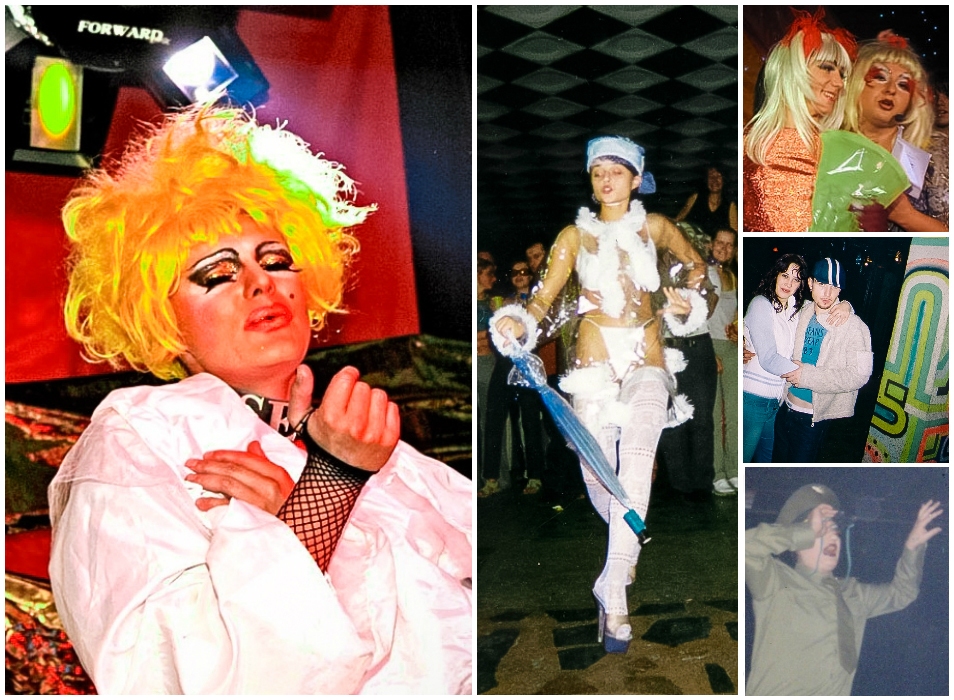
Three stages of Babylon development: a gay club – an art club – a zoo
From the beginning, Babylon was an ordinary enterprise for one’s own pleasure, then it became a commercial project – it was becoming more and more popular. From a gay club (a venue for insiders) Babylon turned gradually into an art club (a bohemian venue), and it ended up as a place where people went “to look at gays”.
Dzima: “At first, there were only the insiders, when you came there, you could be sure there were no strangers. There were no outsiders at all. You came to the club and knew what to expect from that place. It had its own public, its own DJ, always a good show program. But gradually, Babylon started to transform – from the venue for exclusively its own public into a bohemian venue. More and more people learnt about it. On the weekends the club was fully packed. The owners made a free entrance on the weekdays (check bar or some other system). Students from neighboring dormitories started to come. The club was rumoured in the city, it was advertised on the radio. And little by little people started to come here like into a zoo. When you are looked at like a monkey in the zoo, it’s truly unpleasant.”
“On the whole, an outsider could never say that it was a gay club, sometimes there were more ladies than men”, – DJ Яdzik says about the late days of Babylon.
Straight girls’ love for gay clubs is a well-known phenomenon. According to my interlocutors, girls felt more comfortable in Babylon comparing to “ordinary” clubs, they felt more relaxed and safe there. Dzima remembered how he had came to the club with his heterosexual female friend every Saturday night.
Dzima: “She told me: “Here I don’t feel myself to be a slice of meat that someone is hunting for”. Rather rich ladies started to go there in order to have a real fun and not to feel the object of desire at the bar”.
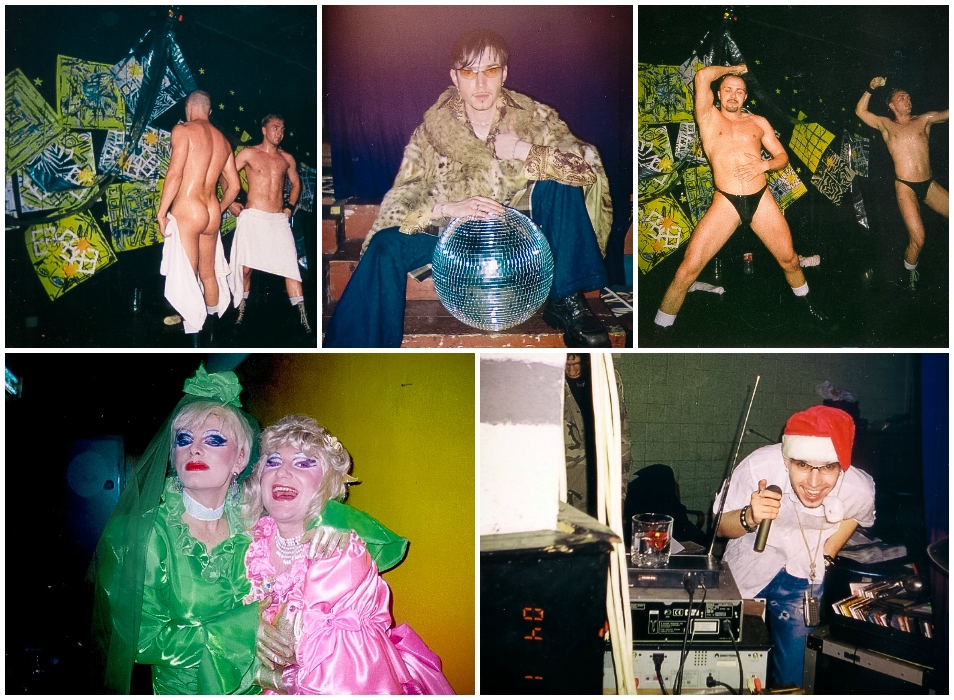
None came here for spirituality
It is true that in some time Babylon became very popular among heterosexual public too. An internet topic dedicated to the club is still kept at the web-pages of one of the Belarusian forums. I publish here some most vivid comments, to my mind.
torven: “Recently I’ve been to this club. Have a lot of impressions. Starting with the fact that my friends and me were not admitted at first – they said we didn’t look like gays (…) and ending up with absolute freedom and sassy atmosphere that I’ve never seen in my life”.
PasGor: “… concerning gays and lesbians – but they don’t molest anyone, they have their own bunch. Sometimes you can see very remarkable guys there… And more – the club is rather uninhibited – some first times there I was goggling at what was happening (bedlam!), but then I got used to it.”
Tigra: “I got there for the first time immediately after the opening… And from the very first time there I realized there was no alternative for such a club in Minsk. And not because of the huge number of gays there (by the way, there are fewer and fewer of them now) but thanks to the uninhibited and absolutely free atmosphere.”
But what attracted heterosexuals in Babylon? What were they looking for? One of the forum users under the nickname maloy agreed to remember the old days and answer the questions on my request.
maloy: “As far as I could judge, not gays went to the club with their girlfriends. For example, I didn’t know what to do there without my girlfriend. And also it was probably a bit of dicey for me because there was and still is a kind of homophobia. But girls went there gladly and they brought me.
And I think for girls it was a real breakaway. There was an atmosphere that my female friend could be as sassy as she wanted and no one would insult her or call a slut or a whore.
And girls could kiss each other, they were always pardoned for their bisexuality, it even hyped boys up. On the whole, it was so cool to be inside all this female depravity, I couldn’t even find the words how cool it was.
It all happened so: firstly, we gathered somewhere in a café or at someone’s house, took some primers, then there was a call to Babylon and we went there. And then hyped-up pairs went straight to bed to fulfill their hot desires. If a girl wanted a boy, she had to take him to Babylon, then they would inevitably wake up together and he would inevitably be crazy about that night, this rule worked 100 %. So it was. None went there for spirituality.”
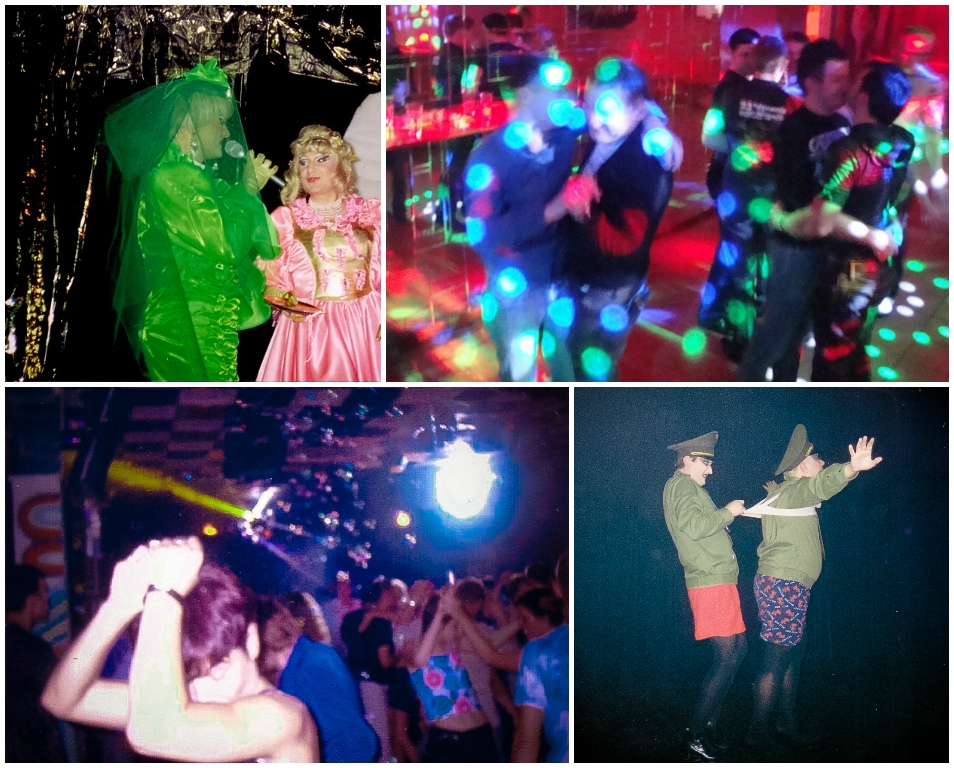
Why the idea of a “mix-club” failed, or Babylon’s decay
Somehow or other, the idea of “mixed club” didn’t work. As earlier at Panikoŭka the internet café “Soyuz Online” had put vendor stalls on the street near the House of Officers, disturbing the intimacy of the venue, the same happened here: the safety of the regular visitors was put under threat. Other people with other goals came to their territory. And those other people took Babylon differently. They were not “insiders”, they disturbed the intimacy.
Dzima: “Mix club is a mix club. But when it is turning into a zoo, it’s rather distressing. When people just go along the tables and point fingers, it is rather upsetting. Until it happened within the closed establishment that few people knew about it was rather comfortable. It was a good place for good recreation. It all was ok. But when it became a “legendary” Babylon, it all started to collapse, starting from that “legend”. People came there and looked at all that with their reactionary eyes. It became unpleasant. It all lived till it died in a pursuit of, perhaps, a more profitable marketing. It’s such a sad story.’”
Among the reason that resulted in Babylon closure Dj Яdzik also named the presence of “strangers”.
Dj Яdzik: “I realized that the club had changed, the public had changed. I saw that our public was just pointed fingers at, and I realized that it was better to kill the venue for it not to suffer.”
Babylon: from private to public
A club is a closed venue, and for a long time Babylon frequenters felt rather easy in their mostly hermetical existence. Nevertheless, even before a wider circle of people came, the collision with the outside world occurred – for example, on the way home by public transport.
Dzima: “Of course, the most interesting things happened after the end of the party. All these people spangled and feathered, in their wigs were going home. In those days it was expensive to go by taxi, so they took public transport too. You should see how those people who went to their factory work early in the morning reacted to that all.
It was a kind of kitsch, and a very fierce one. It was not difficult to make up a performance just at the metro platform. I couldn’t understand why they were allowed in at all.
The most interesting thing was that in the beginning there was completely no aggression. People just went by and looked aside. It was clear that they were embarrassed, to be frank. For example, when two young men go from the club, chatter in metro, and then at the metro exit one kisses the other and leaves, and the other goes its way. Certainly, people were shocked to some extent, but they just didn’t want to pay any attention. They thought about the scene for some minutes, and then forgot about it completely.
Why has it all happened? Why do we find ourselves in such mire? Now we have nothing at all. In those days people were playing with elastics, playing “socks”, read poems by Marina Tsvetaeva, talked, got acquainted. And what is now? People have left the streets, because it became boring and dull there. For example, I don’t see any LGBT-community in Belarus at the moment. It just doesn’t exist. Ok, L and G are more or less visible, at least slightly, but there is no T-community at all. And it’s a big problem.”
By their temper and emotions Babylon and Panikoŭka were different, and sometimes they were even contrary. When Panikoŭka was a “mother figure”, that accepted everyone, according to my feelings, not all were allowed to Babylon. My interlocutors that had been under 18 at that time told me how they watched by the entrance and dreamt about the time when they would be able to get inside (“Security did not allow you behind the fencing: you had to stand in the corridor and watch how people went to and fro and you thought how happy they were.”)
Alisa (27 years old): “I wasn’t allowed there for a long time, because I was less than 18 years old. They didn’t let me in, but I came there nevertheless. And then, when I was 18, I celebrated my birthday there. I was so happy!”
Siarhej (26 years old): “I tried to get there in a one of the evenings. There still was that sign board “BABYLON”, as in a series “Queer as folk”. I was excited: here I was going to the gay club for the first time; there would be so many gays! But I was not allowed in, because I hadn’t taken my passport. And I didn’t take my passport, because I was 17. Eventually I got to the club when I was already 18 – in the last months of its work. I took the last tram, so to say, the train that had already set off.
For me personally, it was, of course, the time of great feelings, because I had heard a lot about Babylon, many people had told me about the legendary parties. It was a very, very exciting moment for me. For all that time Babylon had been a mystery for me – with a touch of pleasant childish dreams that its party would look like a winter party pride in Miami.”
About the music and not only that
DJ Яdzik: “I’m deeply sure that in those times and now people go to such clubs not for music – unlike to “straight” clubs. People go here because of other things and you have to satisfy them all. Someone likes Madonna, someone likes Rammstein and for someone Tanya Bulanava is Dalida. But as an accompaniment, as background music plays a very important role. Public demands the music to sound familiar. While they are sober, they can perceive the club music, but with every glass of alcohol the need for pop, simpler and easier music arouses. And also with every new glass people demand earlier and earlier music. That’s why fresh music is in the beginning of the party and at the dawn… [today DJ Яdzik works in a bar-club «CASTA DIVA» [5]— MAKEOUT].
Frankly speaking, at the dawn I feel glad on the one hand, but on the other hand, I’m not sure about that. At 4-5 in the morning being waxed, they would stand and demand: “Come one, Babylon!”
This public is not so numbered (about 10 % during the night); I call them our “ancient Babylon creakers”. They demand the music they have danced here to and got excited to, it was probably a wonderful memory for them. And when they reach the level they have reached here, they could have their memory chakras open and they could cry and drink the rest in the bar with that music in the background. As far as I know some people still live on Babylon.
There are people who really remember that often. They sit, drink and weep: “Do you remember how fine it was in Babylon?” I try to stop such talks, because it doesn’t matter how fine it was, I consider myself to be a person who doesn’t live on the past. I still think my best Babylon is ahead.”
Translated from Belarusian by Jula Cimafiejeva
Comments
Panikoŭka is Aliaksandraŭski Square, a small public park in the very centre of Minsk, known as the Panikoŭka or Panika to its frequent visitors.
Forum was a magazine of Belarusian LGBT association Lambda. It had been published from 1998 till 2002 in Minsk. Edvard Tarliecki was the magazine editor. On 13 March 2001 the authorities annulled the registration on the magazine, declaring it to be erotic.
Lambda was the first unofficial LGBT association in Belarus, founded in 1998 by Edvard Tarliecki. Its full name was Belarusian league of sexual minorities “Lambda”.
Vstrecha was the first Belarusian gay club. The club changed its name several times, it existed till 2013.
CASTA DIVA is a night gay club in Minsk.

